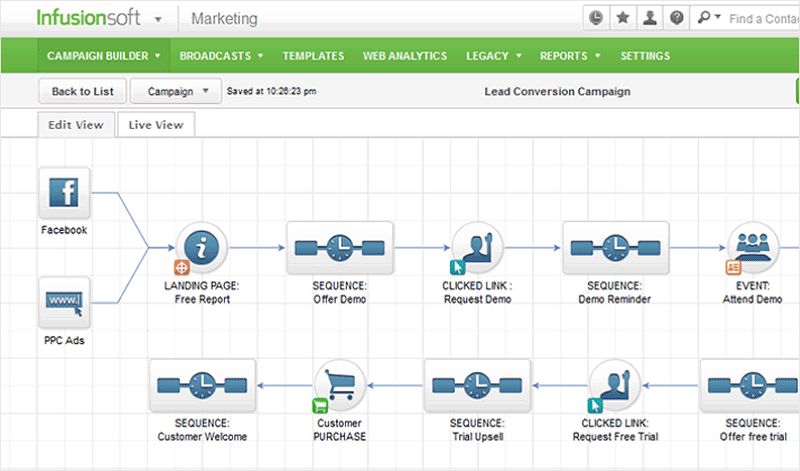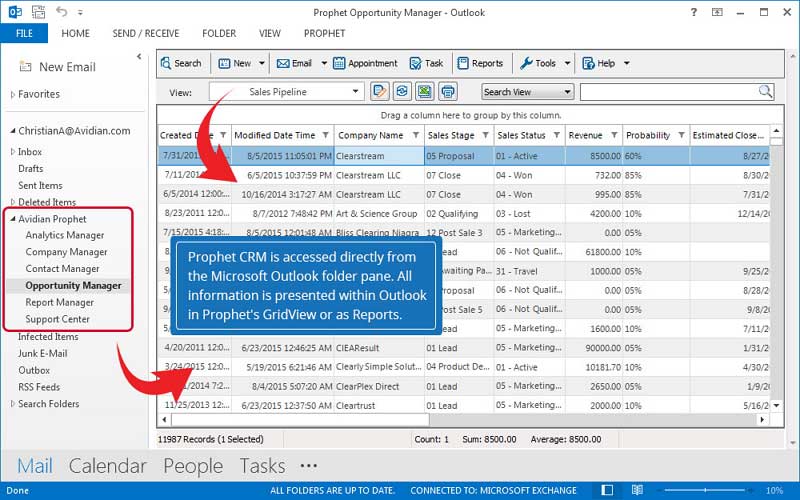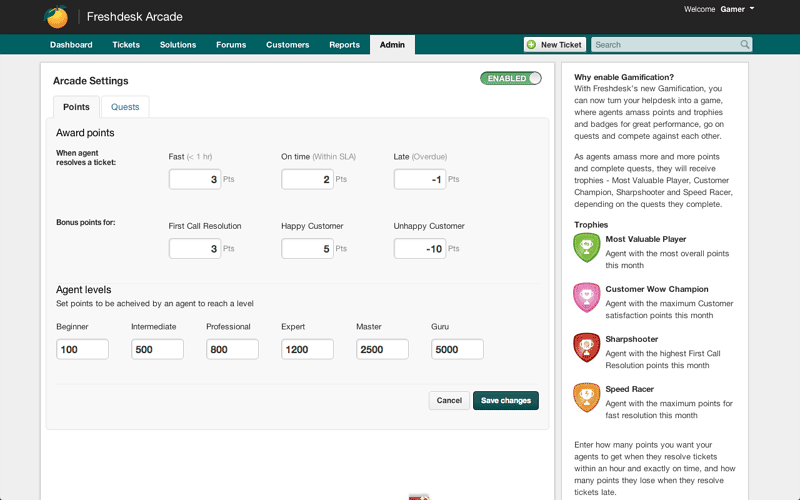PDFelement - Edit, Annotate, Fill and Sign PDF Documents

Modern real estate CRM are becoming part and parcel of real estate companies looking to create and maintain smart customer relationships. Well, the agencies utilize CRM real estate software to track and maintain customer's information in a way that translates to better service delivery. So, with a lot of these software in the market today, which one should you go for? This article has done the research for you and compiled six of the best real estate CRM software and tools in the market today.

Salesforce offers CRM solutions for small and mid-market real estate organizations. Its capabilities include market automation, sales management, customer service and partner relationship management. The tool helps the real estate agents to track sales lead, manage customer accounts, and conduct and monitor marketing campaigns. The real estate CRM software is only available for Software-as-a-Service (SaaS). The software provides technology that covers for database, security, and workflow.
Pros:
Cons:

Infusionsoft offers some of the best solutions for marketing automation. It provides lead generation tools and social media tools to get you covered in this modern business ecosystem. This real estate CRM helps the real estate agencies attract leads, streamline sales, and close deals. Its interface is instinctive and simple to use. More so, it integrates well with contacts databases and calendars. It also makes the automation of emails and contacts very easy.
Pros:
Cons:

Pipedrive is a standalone CRM with emphasis on ease-of-use, simplicity, and visual design. It focuses on helping the users to focus on the right customers and the right deals. It also gives the agents a clear overview of the company's performance. The tool is accessible anywhere, and it can be used by both small and mid-sized businesses. It has a data migration feature that makes it easy to switch to a different system.
Pros:
Cons:

Prophet CRM unifies outlook's contacts, email, and calendar data with stages, opportunities and records thus making it possible for the teams to analyze the customers' information with this single tool. This CRM for real estate helps to track meeting schedules, emails, and comments.
Pros:
Cons:

Freshdesk brings all the customer conversations to a centralized user-friendly interface. It helps manage workflows, multiple groups, and escalation procedures. It also supports multi-language and multi-time capabilities. The real estate CRM supports Windows, Mac, web browser, and Linux operating systems.
Pros:
Cons:

Now that you know which CRM tool to go for, how about you find a tool to manage all your documents? In this regards then you should check out Wondershare PDFelement, a tool that provides the real estate professionals with some awesome to manage their business documents. It helps streamline document preparations and handling thus encouraging virtual collaboration between clients, agents, brokers, escrow officers, and attorneys.
The tool helps transform any document into a PDF file and merge it with other documents such as Word, PowerPoint, and spreadsheets. It also ensures correct client information with advanced form filter, builder, and customizable templates. It also helps in updating property listings and presentations with advanced editing tools. Users can edit the content in the PDF, change fonts, colors, and images. It helps the agents save time by using OCR to change the hard copies into editable and searchable documents. Lastly, the tool helps protect documents containing sensitive client information with passwords.
Perhaps you are wondering what CRM is all about. Well, CRM stands for Customer Relationship Management. In real estate, CRM refers to the technologies, practices, and strategies that a real estate agency uses to analyze and manage customer interactions. The aim of a CRM is to improve the business relations with clients in real estate, boost customer retention and drive sales.
A CRM for real estate compiles customer information or the contacts between the agent and the customer. Some of the things stored in this case include telephone, direct mail, live chat, marketing materials, and social media sites data. The CRM gives detailed information about the client's purchase history, tracks interactions, and manages client's data.
Still get confused or have more suggestions? Leave your thoughts to Community Center and we will reply within 24 hours.